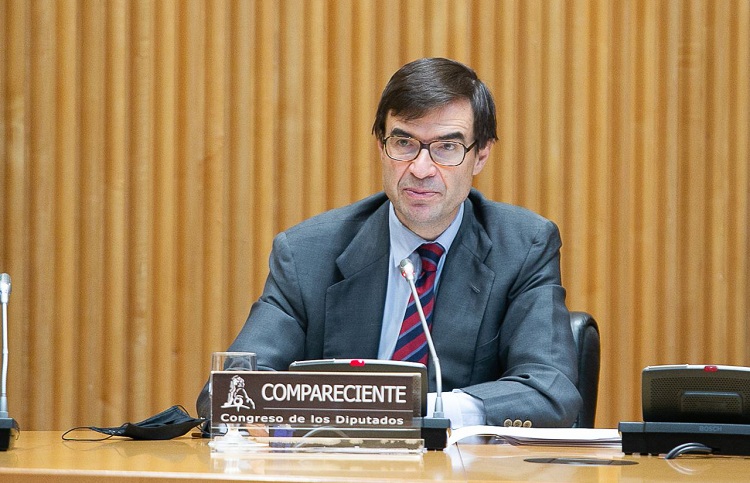The Diplomat
The State Secretary for the EU, Juan González-Barba, appeared yesterday before the Joint Committee for the EU to explain the details of the Conference on the Future of Europe, which will be inaugurated this Sunday in Strasbourg and will conclude in the spring of 2022.
The conference, which will be held a year late because of the pandemic and the discrepancies between the Council, the European Commission and the European Parliament, “is an instrument that was created with the aim of listening to the population and connecting it with European policy”, explained González-Barba during his appearance.
According to the State Secretary, the conference comes in the midst of the “existential challenge” that the EU has faced due to the COVID-19 pandemic, from which it has managed to emerge thanks to the Recovery Plan and the unified management of vaccination. “The EU has committed to our economy and jobs, and has guaranteed Europeans free and equal access to vaccines”, he said. “The pandemic has allowed the European Union to demonstrate its concrete usefulness for citizens”, he added.
The conference will run “bottom-up” through a multilingual digital platform, a series of panels and a plenary, which will run simultaneously and feed into each other, he continued. The platform, which will collect the proposals and opinions of citizens, is available in the 24 official languages of the EU in order to facilitate “transnational debate” and the Spanish government has established a mechanism, in coordination with the autonomous communities, to translate the contributions into the co-official languages of Spain, he added.
In addition, at least four panels are expected to be held, from which a series of recommendations will emerge that will be transferred to the plenary. The panels, one per quarter, will take place in Strasbourg (France), headquarters of the European Parliament; Bruges (Belgium) and Nantolin (Poland), headquarters of the European College; and Florence (Italy), headquarters of the European University Institute. The first panel will be held in June, before the end of the current Portuguese presidency of the Council.
As for the plenary, the State Secretary expressed his hope that this Sunday, during the opening ceremony, its composition, which has generated much debate, can be finalized. In any case, it is already known that the largest delegation will be the parliamentary delegation, made up of 108 representatives of the national parliaments and another 108 from the European Parliament. There will also be 27 delegates from the Council (one per Member State) and representatives of Business Europe, the European Trade Union Association and citizens participating in the panels, up to a total of 400.
Moreover, the conclusions of the conference will be drawn up by an executive board made up of representatives of the Council, the Commission and the European Parliament, “in consultation with the plenary”, and will be set out in a report whose recommendations will not be binding, although they will be taken into account and could lead to “tangible changes” before the European elections in 2024, explained González-Barba.







